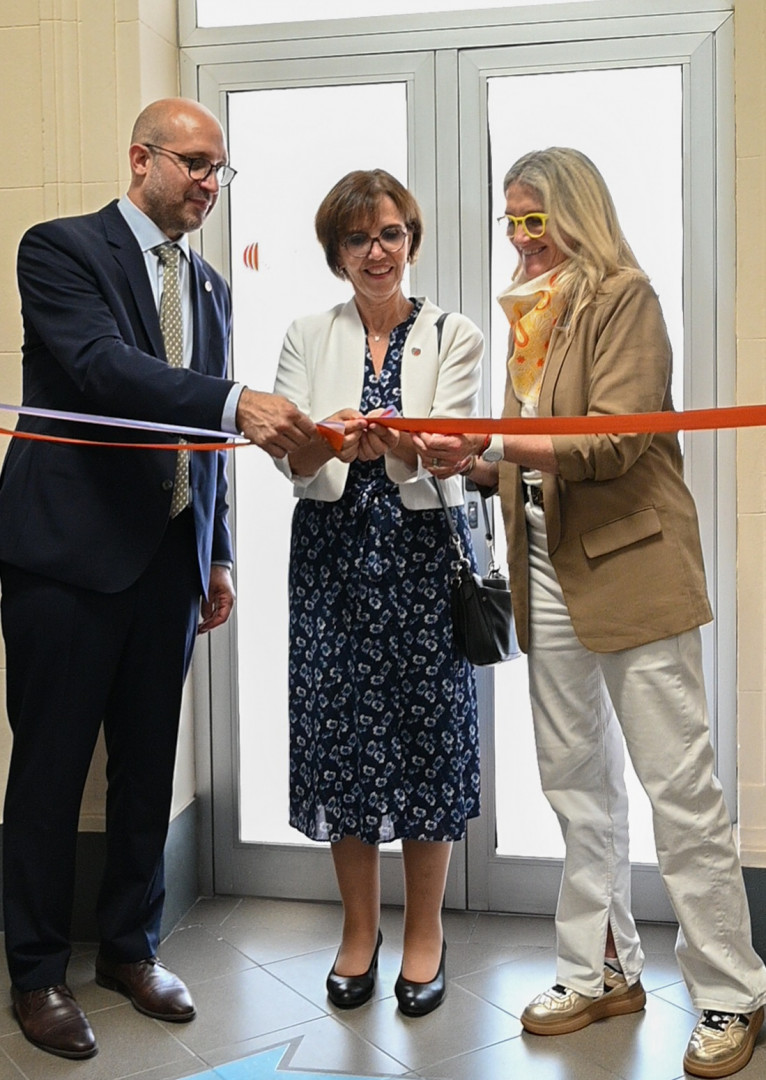Opening of the new offices of WOAH Regional Representation for the Americas in Buenos Aires, Argentina.
During her institutional visit to Argentina, Dr Emmanuelle Soubeyran, Director General of the World Organisation for Animal Health (WOAH), together with authorities from Argentina’s National Service for Agrifood Health and Quality (SENASA), officially opened the new offices of the Regional Representation for the Americas.
This representation was formally established in Buenos Aires more than 20 years ago through an agreement signed between the Government of the Argentine Republic and WOAH, known as OIE at the time.
‘The SENASA is honoured to provide WOAH with a new space within the organisation, a sign of its unwavering commitment to this organisation, which reaffirms Argentina’s leadership in animal health,’ said Maria Beatriz Giraudo, President of SENASA.
By working closely with its Members, the Organisation enables regional issues such as transboundary diseases, animal welfare and antimicrobial resistance to be addressed with an approach tailored to local needs. The Regional Office supports and strengthens the development of regional strategies to address common health challenges through collaboration with Members, the network of experts, reference centres, organisations, and partners in the region.
In addition to Engineer Giraudo and Dr Soubeyran, the inauguration was attended by, from left to right, Dr Mariano Ramos, Head of General Coordination of International Animal Health Affairs at SENASA, Dr Daniel Caria, Argentina's delegate to WOAH, and Dr Francisco D'Alessio, WOAH Regional Representative for the Americas
This decentralised model is replicated throughout the world: WOAH has 13 regional and subregional offices that facilitate cooperation between countries in the region, the exchange of data and the strengthening of Veterinary Services.
‘These offices act as a bridge between headquarters and countries. Their main mission is to adapt WOAH’s global priorities to regional realities and needs, promoting technical cooperation,’ said Dr Soubeyran.
The regional offices also promote the exchange of information and experiences, the development of Veterinary Services capacities, and collaboration between the animal, human, and environmental health sectors, in close coordination with international organisations and regional partners.
A clear example of this joint work was the creation of a regional expert group in the Americas under the Global Framework for the control of Transboundary Animal Diseases (GF-TADs) following the emergence of African swine fever in Asia in 2018. The aim was to prepare countries in the Americas, which had until then been free of this disease, for its possible introduction. Thanks to this preventive action, the region had an active and coordinated network in place when the first outbreak was reported in the Dominican Republic in 2021.
This case demonstrates how the local presence of WOAH strengthens health resilience and regional cooperation, ensuring faster and more coordinated responses to emergencies and local issues.
The inauguration of the new offices in Buenos Aires symbolises a new chapter in the collaboration between WOAH and the countries of the Americas. From this space, the organisation will continue to promote animal health and welfare, promoting the One Health approach and strengthening its technical support to Members in the region. The Regional Office seeks to consolidate its position as a hub for collaboration, where countries see their interests reflected, feel identified, and actively participate in the organisation’s actions.
‘With this opening, WOAH reaffirms its commitment to continue working together with the countries of the Americas, under the principle of international collaboration, for a healthier, safer and more sustainable world for all,’ concluded Dr Francisco D’Alessio, WOAH Regional Representative for the Americas.
Photo carousel:
During her institutional visit to the region, Dr Soubeyran also carried out an official mission in Chile, where she held meetings with national authorities and visited various animal production centres. In Argentina, she also met with representatives of the private sector and was awarded the title of Doctor Honoris Causa from the University of Buenos Aires in recognition of her career and contribution to strengthening animal health globally.


